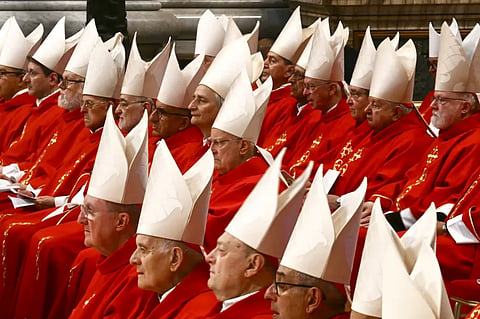

On Tuesday, the 133 cardinal electors are set to move into Vatican lodgings ahead of Wednesday’s secretive conclave, during which they will choose the next pope following Pope Francis’s death on April 21.
Traditionally housed at the Santa Marta guesthouse—with its en-suite bathrooms and hotel-style service—the record-sized gathering from 70 countries now exceeds the building’s capacity. To accommodate everyone, several cardinals will instead stay at the adjacent Santa Marta Vecchia, with room assignments determined by lot. They may access their quarters from Tuesday until the pre-conclave Mass on Wednesday morning.
This assembly marks both the largest and most internationally diverse papal election in history. While recent elections elected a pontiff within two days—both Francis and his predecessor Benedict XVI—it’s worth recalling that the longest ever conclave stretched 1,006 days between 1268 and 1271.
Ahead of the vote, both under-80 electors and senior cardinals have engaged in nearly daily preparatory sessions since the late pontiff’s passing. Topics have ranged from Vatican finances and the clergy abuse crisis to Church unity and the desired profile for the new pope. Franco-Algerian Cardinal Jean-Paul Vesco told Corriere della Sera that these meetings have fostered camaraderie among a “very disparate group” of prelates, many of whom had never met before.
Vesco suggested that “five or six” leading candidates are emerging, though none currently stands far above the rest. “There were the so-called ‘natural’ contenders, known for their roles and personalities,” he said. “Others surprise you with their strength. There’s no clear frontrunner… but it will happen.”
Observers note that approximately 80 percent of the electors were appointed by Pope Francis—a reform-minded leader from Buenos Aires who, during his 12-year papacy, both opened the Church to new audiences and disappointed conservatives by not defending certain doctrines. Whether his successor continues a progressive trajectory or reverts to a more traditionalist path remains to be seen, and experts warn of possible surprises.
Strict secrecy surrounds the conclave:
Any cardinal who leaks details risks excommunication, and all are barred from external contact once voting begins. The Vatican will reinforce this blackout on Wednesday afternoon by disabling mobile signals across the city-state—and even deploying jammers around the Sistine Chapel—to thwart any digital eavesdropping, according to Italian media reports cited by CNN. Supporting staff, from medical personnel to canteen workers, also took oaths of confidentiality on Monday.
As the world awaits the telltale smoke signals—black, signaling no decision; white, announcing a new pope—the Church embarks on one of its most historic and closely watched electoral processes.
